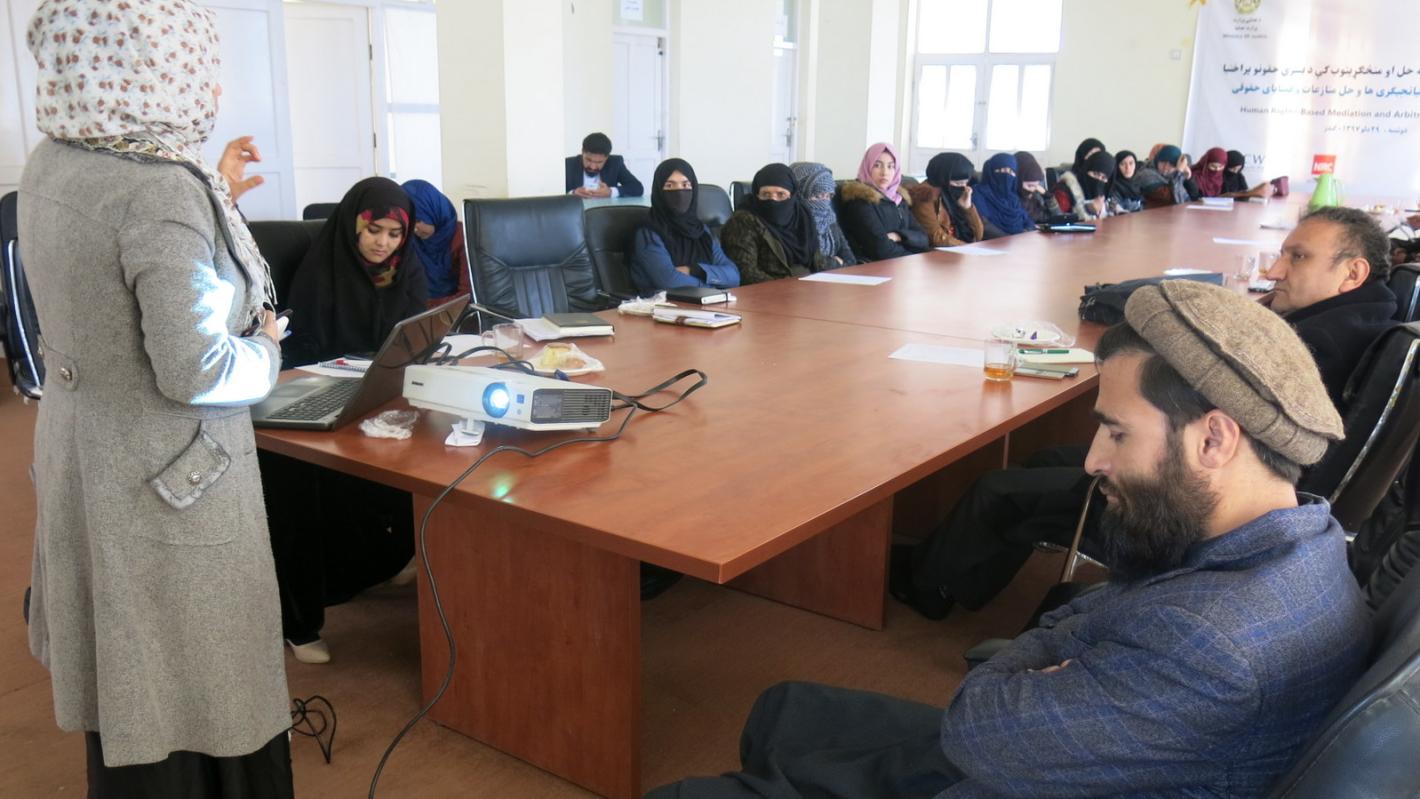KUNDUZ - Participants at an event in the north-eastern province of Kunduz, say skilful mediation promotes dialogue, brings disputing parties closer together and helps with peaceful and quicker resolution of disputes.
During a one day workshop organized by UNAMA regional office in Kunduz, more than 30 representatives of local shuras and traditional elders –half of them women– discussed the importance of human rights principles in mediation and arbitration of civil cases. Participants noted that while criminal cases must be referred to the formal justice system, many civil disputes are resolved through mediation because the process is faster, more affordable and often involves less travel.
Zargul Alemi, one of the participants and a mediator, says that many civil disputes involve land, inheritance and marital matters.
“A family dispute arose last year in which two brothers refused to give their sister her share of the inheritance, following their father’s death,” explained Alemi. “The matter was amicably and positively resolved through mediation,” she said, adding that in many disputes, women are disproportionately affected.
In making their recommendations, participants pointed to the importance of mediators being knowledgeable about the Constitution, human rights, as well as being impartial and acceptable to the parties involved. They also noted that mediation sessions should be well-documented so that all parties share the same understanding of the outcome.
The existing traditional dispute resolution mechanism plays a role in resolving civil disputes. However, crimes, including those of violence against women, must be prosecuted and adjudicated through the formal criminal justice process and not mediated, under Afghan laws and the country’s international human rights obligations.
A joint report published last year by UNAMA and OHCHR, Injustice and Impunity: Mediation of Criminal Offences of Violence Against Women argues that the formal justice mechanism is better equipped to protect women and advance their rights as prescribed in Afghan legislation, including the Elimination of Violence Against Women law and the National Action Plan for the Women of Afghanistan.
The event, which was covered by local Radio Roshni, was aired to an estimated audience of 300,000 people in and around the provincial capital. It is one of many other similar programmes, events and initiatives resulting from UNAMA reaching out to a range of groups across the country to create spaces, both physical and on social media, for them to come together and discuss issues that are of critical importance to them, and to strategize on the best way forward.






